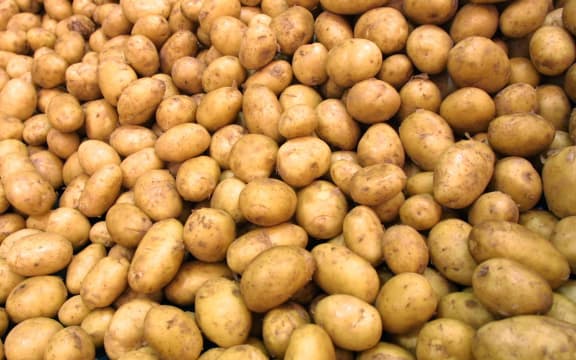Potato growers are accusing the Australian vegetable industry of telling porkies, over the impact of the tomato-potato psyllid.
Australian authorities have ordered another risk import analysis on fresh potato exports from New Zealand, which are currently banned.
It will assess the risk of the psyllid crossing the Tasman on fresh potatoes and establishing itself in Australia.

Photo: AFP
Potatoes New Zealand chief executive Champak Mehta says growers have been through all this before.
"This process was actually undertaken back in 2008 when the psyllid was first detected in New Zealand. Australia stopped the imports of all possible hosts, which were capsicums, tomatoes and potatoes predominantly, but also tamarillos."
Mr Mehta says Australia undertook a pest risk analysis. "Their Department of Agriculture, Forestry and Fisheries said there is no substantive risk to the Australian potato industry, tomato industry, capsicum industry and they let tomatoes and capsicums back in but not potatoes."
He says the Australian vegetable association, AusVeg, has been scaremongering and blowing the threat the psyllid poses totally out of proportion.
"Look the figures and the language that are being used to describe the impact of the tomato-potato psyllid and the zebra-chip bacterium that it vectors - they're just simply not accurate.
"So they're using figures that say hundreds of millions of dollars of impact and that the New Zealand potato industry has been ravaged - look nothing could be further from the truth.
"We estimate the impact on the industry since 2008 has been about $NZ60 million- if we average that out over the last six years it works out to be 7 percent of farmgate value or 2 percent of the total value chain per annum.
"It's an impact that we recognise but it certainly hasn't ravaged us and it certainly hasn't decimated us as they're saying," Mr Mehta says.
Australia remains New Zealand's biggest potato export market but the potatoes take the form of frozen chips - and the industry would like to be able to develop the fresh potato market there.

